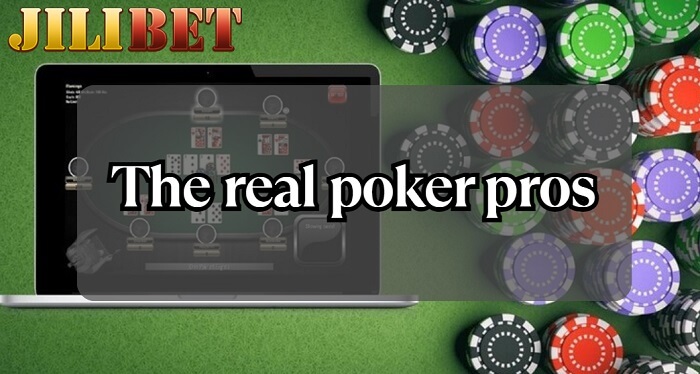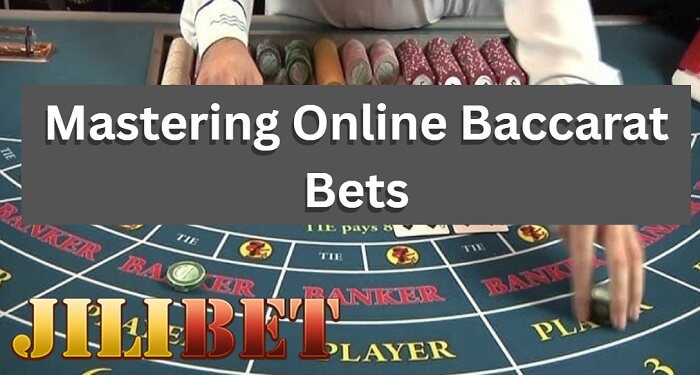Think all you need to win at the live table is to guess right between Banker and Player? Think again. At jilibet, the sharpest players aren’t just watching the cards—they’re watching people. Yup, the real edge comes from observing how others bet. That’s where the real game begins.
Poker, a game of calculated risk and psychological warfare, often captivates audiences with the dramatic clashes between a skilled player and the “banker” – the pot. However, the true masters of the game don’t simply focus on their own hand; they meticulously observe the actions and tendencies of their opponents.
Online Bets = Behavioral Clues
Let’s talk live games. Every player brings their own flavor to the table—some play wild and fearless, others are tight and cautious. But even through a screen, you can read them. That’s because how someone bets is already giving you clues.

Some people bet Banker every round. Others chase patterns like their life depends on it. Then there are those who stay quiet for five rounds and suddenly go all in. That’s not random—that’s strategy.
By watching these patterns, you can: • Spot the table trend faster
• Base your choices on more than gut feeling
• Avoid betting against the flow
• Time your moves for maximum impact
This isn’t about luck—it’s about information.
Mastering opponent analysis begins with identifying their playing styles. Are they aggressive or passive? Do they bet heavily with weak hands or fold quickly? Understanding these fundamental tendencies is the first step towards predicting their future actions. This requires careful observation of their past actions, both in the current game and across previous sessions. Look for consistency in their behavior, noting the frequency of their bets, raises, and calls.
See more information: From Your Couch to the Casino: Mastering Online Baccarat Bets with Ease
Want to Know Who’s Running the Table? Follow the Chips
Watching one person’s actions in isolation isn’t enough. Real pros look for patterns—like who’s controlling the pace of the game.
Almost every live table has a couple of “big boss” players. They bet big, set the tempo, and often influence others to follow suit. You don’t have to copy them, but watch them.
Ask yourself:
• Do they tighten up after losing a hand?
• Did they spot something and start hammering one side?
• Is someone else subtly copying their rhythm?
These are signs of a table shift. Smart players pick up on these changes and adapt—they know when to go on the offense or take a breather.
Observing individual actions in isolation is insufficient. A true poker analyst looks for patterns and trends in an opponent’s behavior. Do they consistently bet big after a specific type of flop? Do they always fold after a certain raise? Identifying these patterns allows for more accurate predictions of their future actions. For example, if a player consistently calls a certain type of bet with a range of hands, you can use this information to adjust your own play accordingly.
When to Go Against the Flow (And Not Let Emotions Run the Show)
Ever see everyone pile onto one side after a streak? Like six straight Players, and now everyone’s jumping on Banker? That’s not always logic—it could be table panic.
This is when next-level skills kick in: reading the room and deciding if you follow—or flip the script. Watch the pros. They don’t rush in. They wait until the rhythm makes sense before striking.
Want to follow someone’s lead? Fine—but follow the right person.
And if you feel the chat’s going off the rails with emotional bets, maybe it’s time to take a breather or play the contrarian move.
Opponent analysis is not a static process. Players are constantly adapting their strategies, and so must you. Continuously monitor your opponents’ actions and adjust your game accordingly. If you notice a player changing their style, analyze the reason for this change. Was it a strategic shift or a change in their hand strength? Adapting your approach is key to success in poker.
Your Strategy + Their Behavior = Double the Edge
Watching how others bet doesn’t mean ditching your own game plan. Actually, the best players test their strategies against what they observe—and tweak accordingly.
Whether you’re using Martingale, flat betting, or just gut feeling, you’ll make smarter moves when you factor in what others are doing. Suddenly your bets aren’t random anymore—they’re calculated plays based on real data.
Another aspect to consider is the psychological game. Online gambling is not just about numbers; it’s also about understanding human behavior. Pros know that watching how other players react to wins and losses can help you gauge the ebb and flow of the game. For example, if a player goes on tilt—exhibiting frustration after a series of losses—this could create an opening for strategic betting. Players under emotional distress may make irrational decisions, and if you can anticipate their next move, it can lead to a significant advantage for you at the table.
It’s Not Cheating—It’s Just Smart
Some folks might say, “Isn’t it kinda creepy to keep watching how others bet?”
Nah. This isn’t a dating app—it’s a casino!
In live casino games, this is one of the only legal advantages you can use. So use it. Ignoring it would be wasting your edge.
Poker isn’t just about the cards; it’s about reading people. A strong poker player understands that the cards dealt are only half the battle. The other half involves deciphering the intentions and playing styles of their opponents. This requires keen observation, the ability to identify patterns, and an understanding of human behavior. A player who solely focuses on their own hand and the banker is likely to fall prey to predictable bluffs and miscalculations.
Experience and instinct go a long way, too. With enough practice, you’ll develop a sixth sense for reading opponents—even through a screen. Mix that intuition with solid strategy and you’ll become a real force at the table.
- Professional Online Baccarat Strategy: Practical Application of Data Logic and Bankroll Control - December 15, 2025
- Mastering Fishing Games: How the Bullet Attrition Rate Model Helps You Identify the Most Cost-Efficient Targets - December 12, 2025
- Online Casino Risk Models Explained: How Platforms Use Fraud Detection Algorithms to Identify Advantage Players - December 10, 2025


